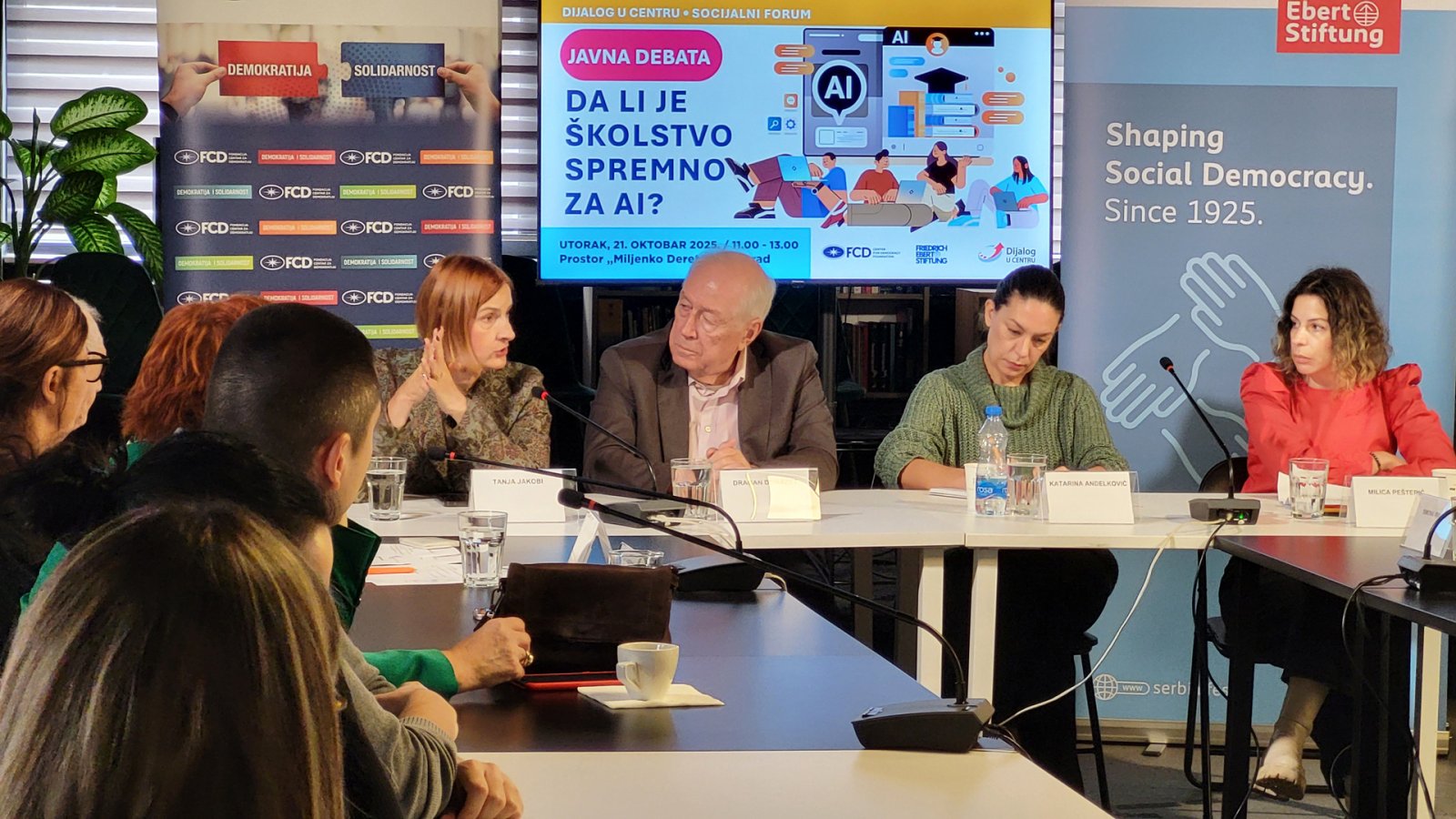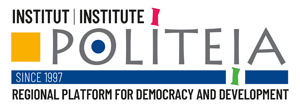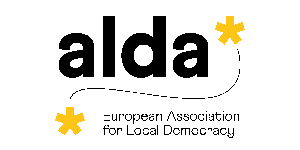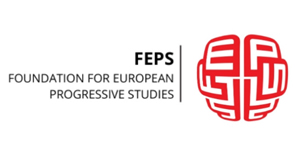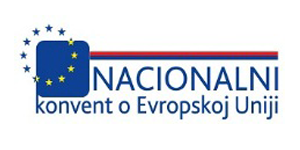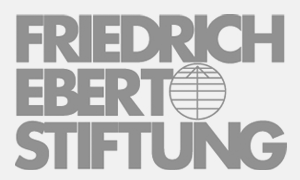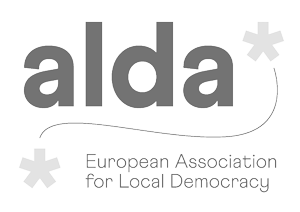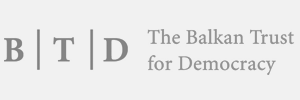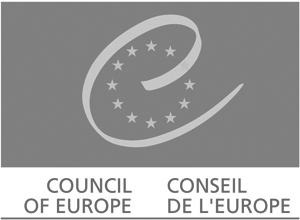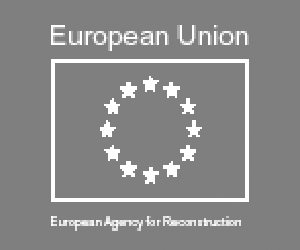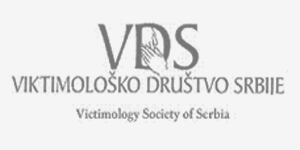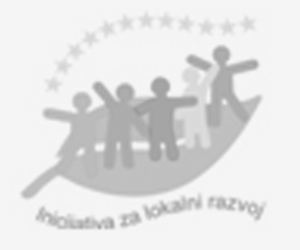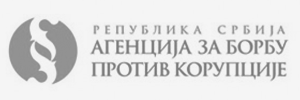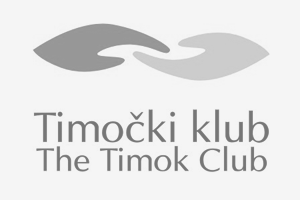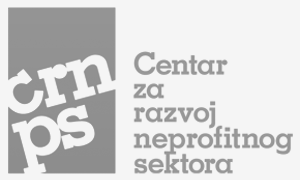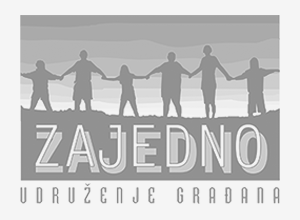Debate: “Is the Education System Ready for AI?”
DIALOGUE IN THE CENTER – SOCIAL FORUM
The Center for Democracy Foundation organized, on October 21, 2025, in cooperation with the Friedrich Ebert Foundation, a debate titled “Is the Education System Ready for AI?”
Are we ready for the changes brought by artificial intelligence? How will the education system adapt to them? What kind of knowledge is needed today? How can we successfully reform education in line with these transformations?
We sought answers to these and other pressing questions through a discussion featuring: Tanja Jakobi (Center for Public Policy Research); Prof. Kristina Vušković (University of Leeds, UK); Ana Dimitrijević (Forum of Belgrade Grammar Schools); Prof. Dr. Dragan Domazet (Metropolitan University); Milica Pešterić and Simona Vračar (Drašković, Popović & Partners); Nikola Marković (Informatics Society of Serbia); Katarina Anđelković (Petlja Foundation); Nataša Vučković (Center for Democracy Foundation); as well as Vladimir Lalošević (Employers’ Union of Vojvodina); Milan Stošić (Veselin Masleša Elementary School), and others. The discussion was moderated by journalist Suzana Trninić.
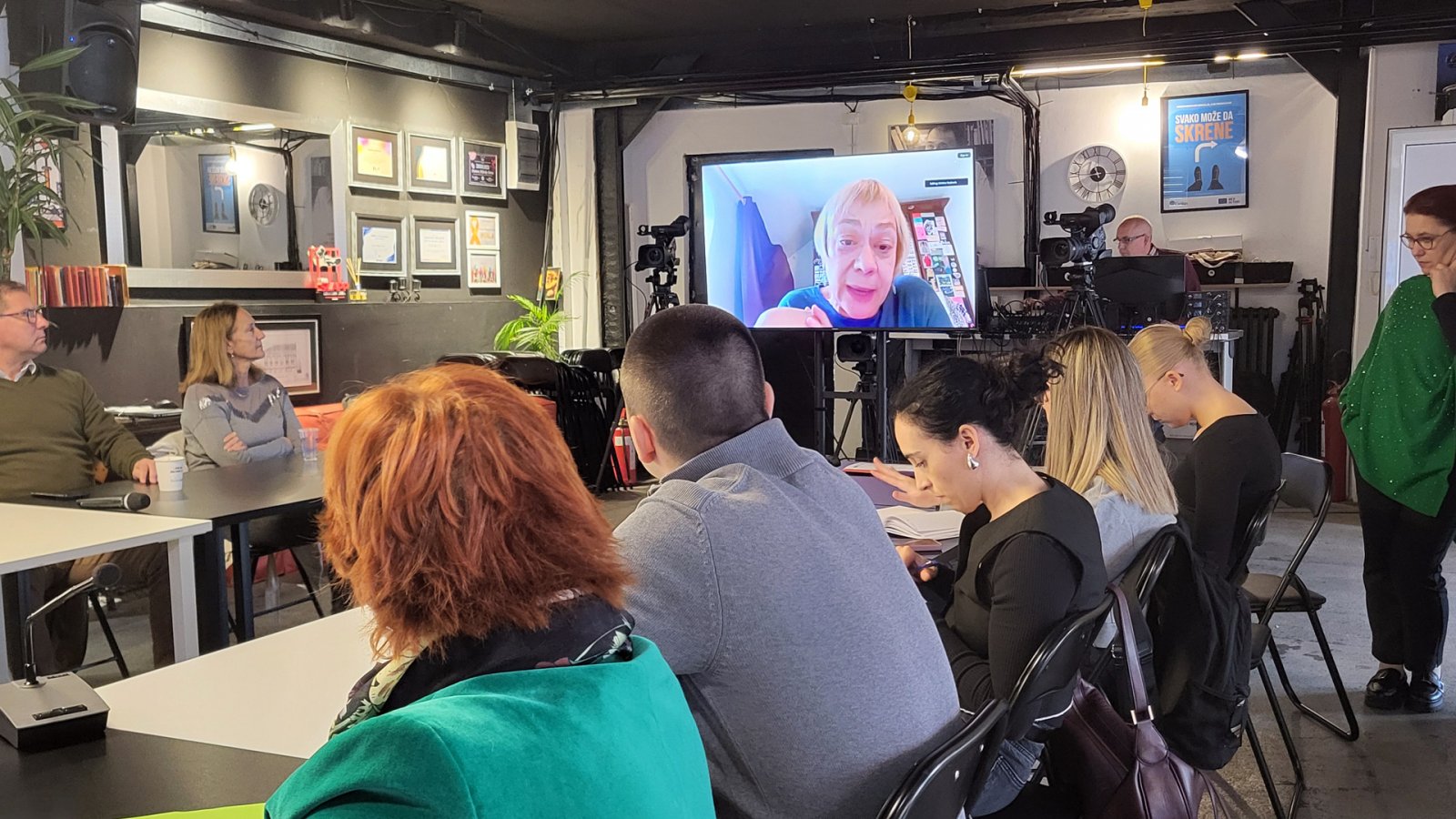
The debate focused on artificial intelligence (AI) and its impact on the way we learn, work, and live, as well as on education as the frontline of that transformation. While the state is adopting a new AI Development Strategy until 2030, education remains a key pillar of its implementation. The discussion explored how well this strategic framework is understood by those expected to implement it, whether our education system is ready for the challenges and opportunities that AI brings, and how AI is already finding its way into classrooms.
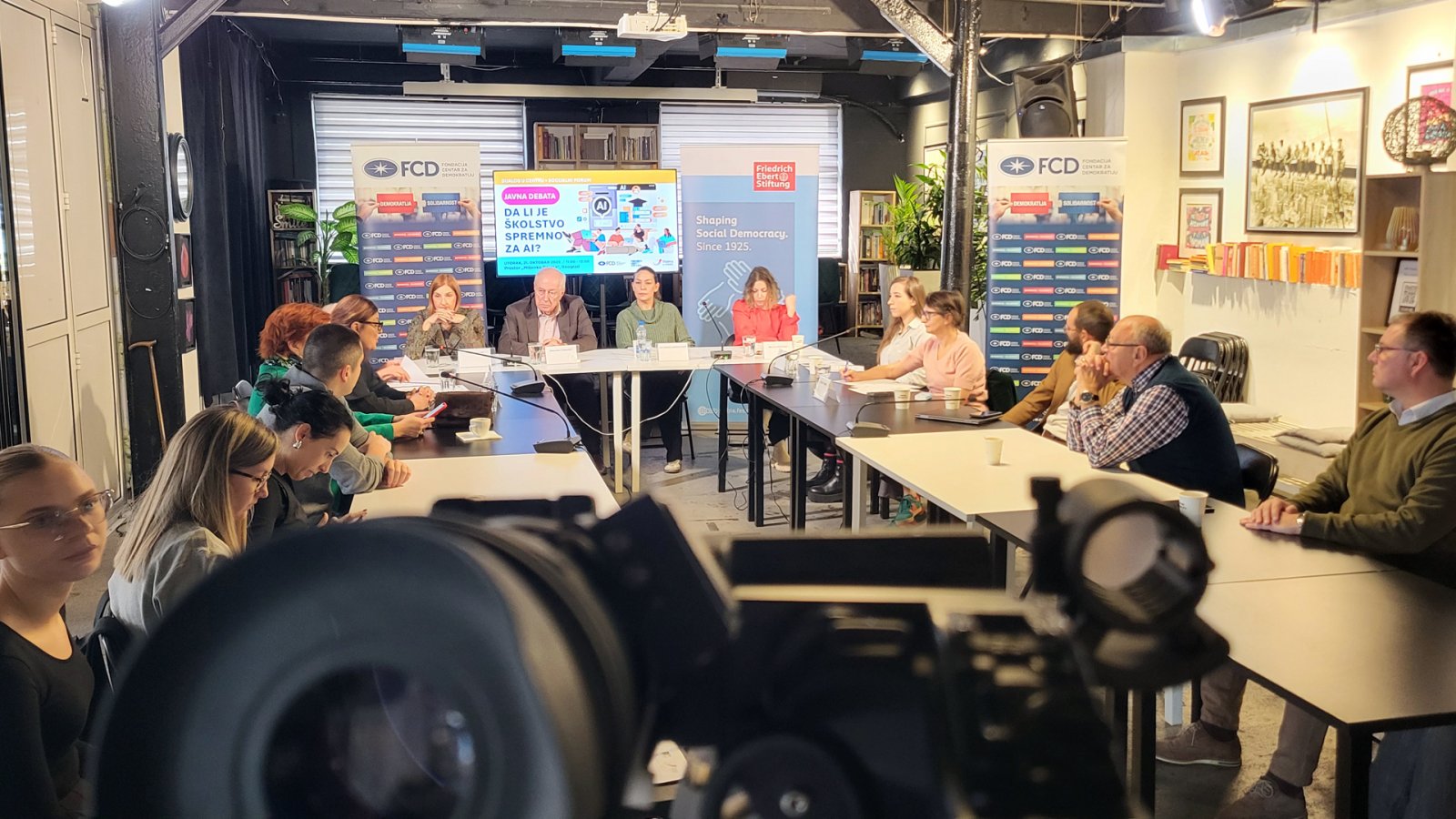
Participants highlighted key questions such as: how the education system will adapt to the changes introduced by artificial intelligence, what kind of knowledge is needed today, how educational programs should be reformed, and how to ensure equality and access to quality education for all.
In Serbia, there is no specific legal act or law regulating artificial intelligence, but there is a Strategy for the Development of Artificial Intelligence and accompanying Ethical Guidelines. The Strategy recognizes education as a crucial factor in the development of AI. It is essential to prepare legal frameworks and ethical standards for the use of AI in a timely manner to avoid misuse and ensure accountability. It is also important to monitor and analyze European regulations, since Serbia is on its European path and aims to transpose EU standards into this field.
Artificial intelligence has not yet been systematically integrated into education in Serbia, although some higher education institutions are implementing digital teaching. The debate underscored the issues of insufficient digitalization of schools and the administrative burden on teachers. AI could significantly reduce this burden, but achieving that requires comprehensive digitalization and staff training. Both teachers and students need training on how to use AI tools effectively.
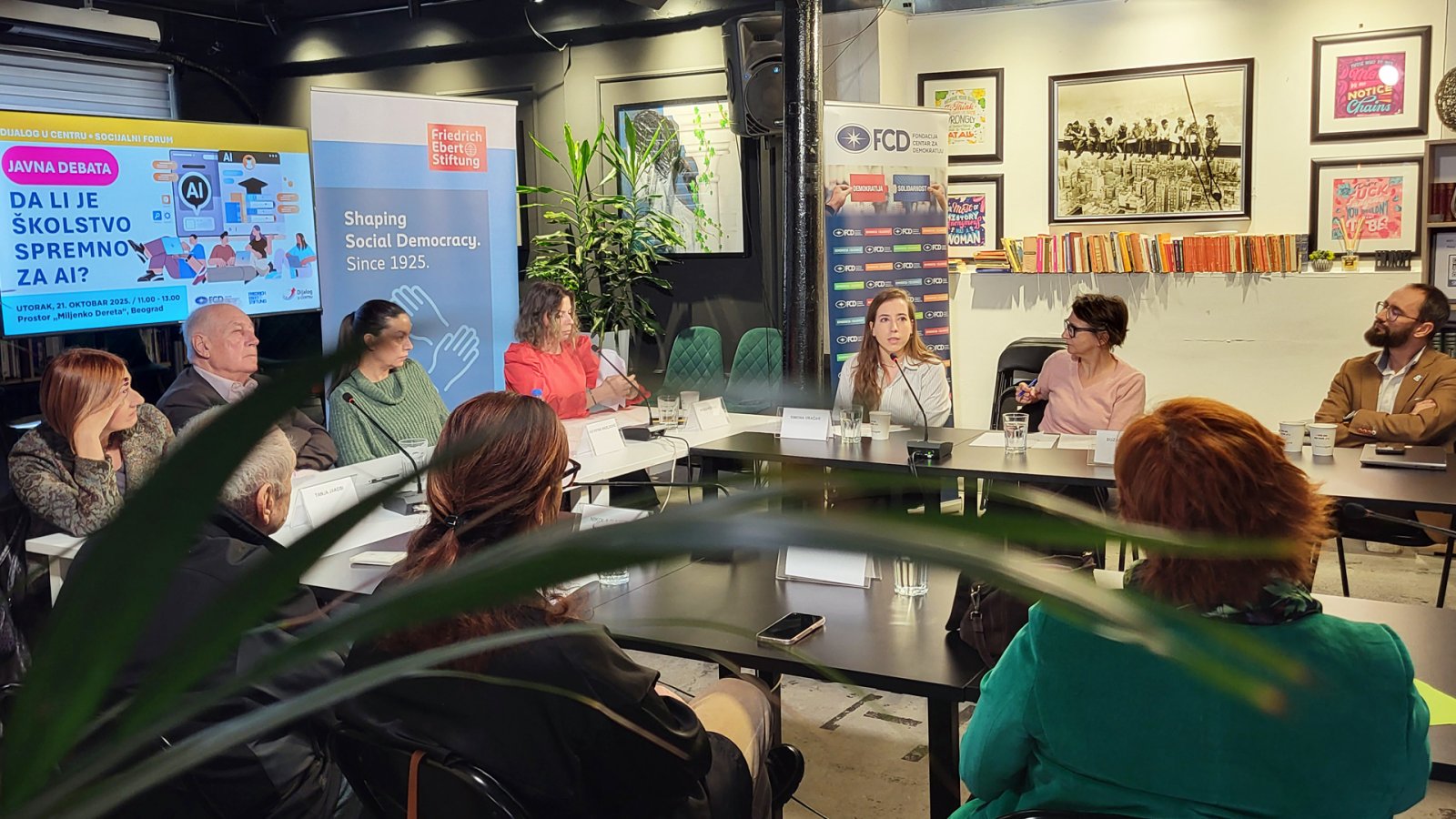
AI in education should be viewed as a tool to assist teachers in lesson preparation, curriculum design, and classroom organization. It was emphasized that teachers will not disappear—their role will simply transform: “The teacher’s role in upbringing and in conveying values remains irreplaceable.”
The discussion concluded that AI should be understood as an opportunity to modernize education and empower both students and teachers. “Artificial intelligence will change the way we learn, think, and teach.” The main benefits of AI in education should include developing analytical and critical thinking skills, creativity, innovation capacity, and multidisciplinary knowledge. It was also noted that we must remain aware of the environmental risks associated with the use of AI.
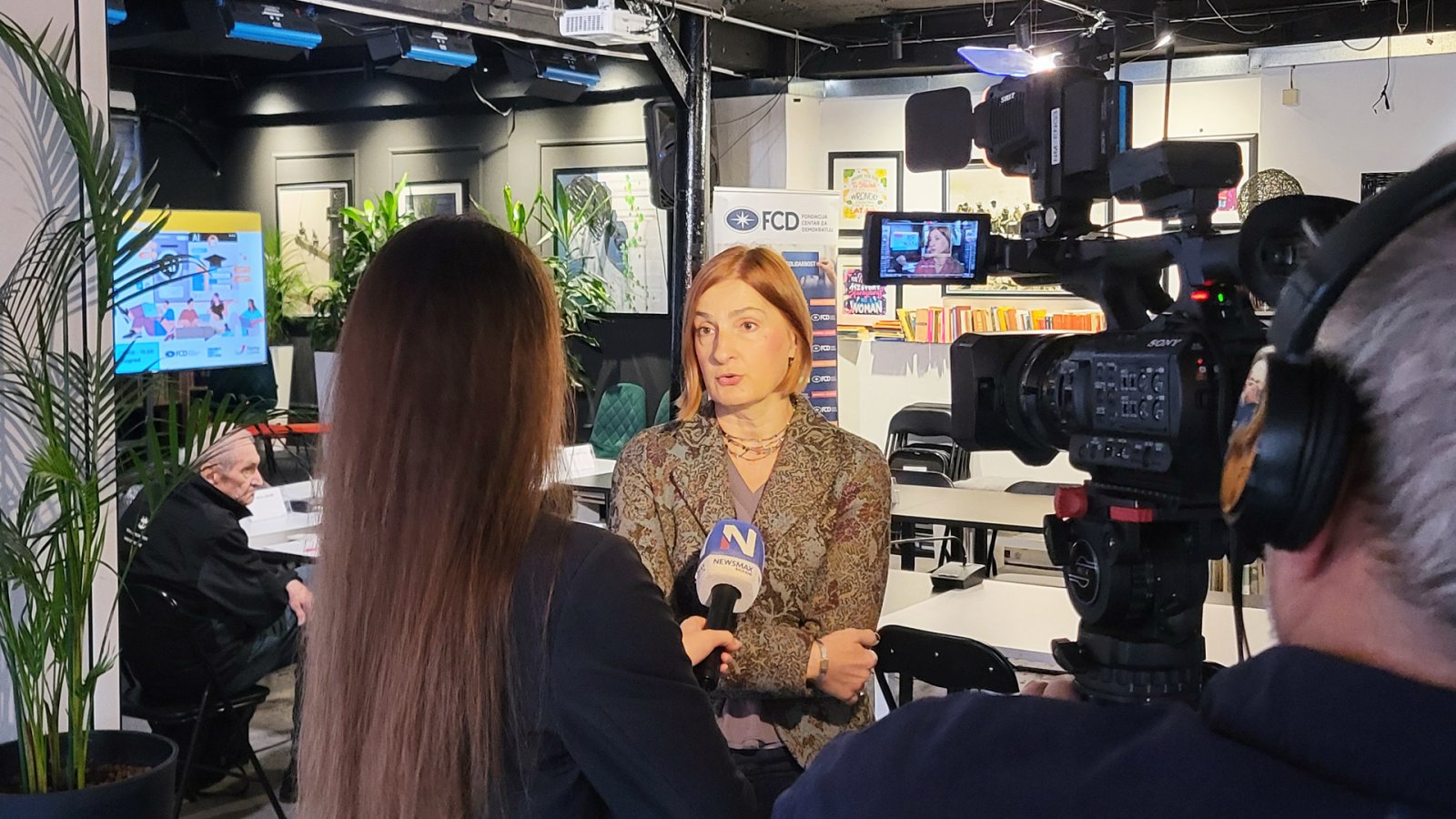
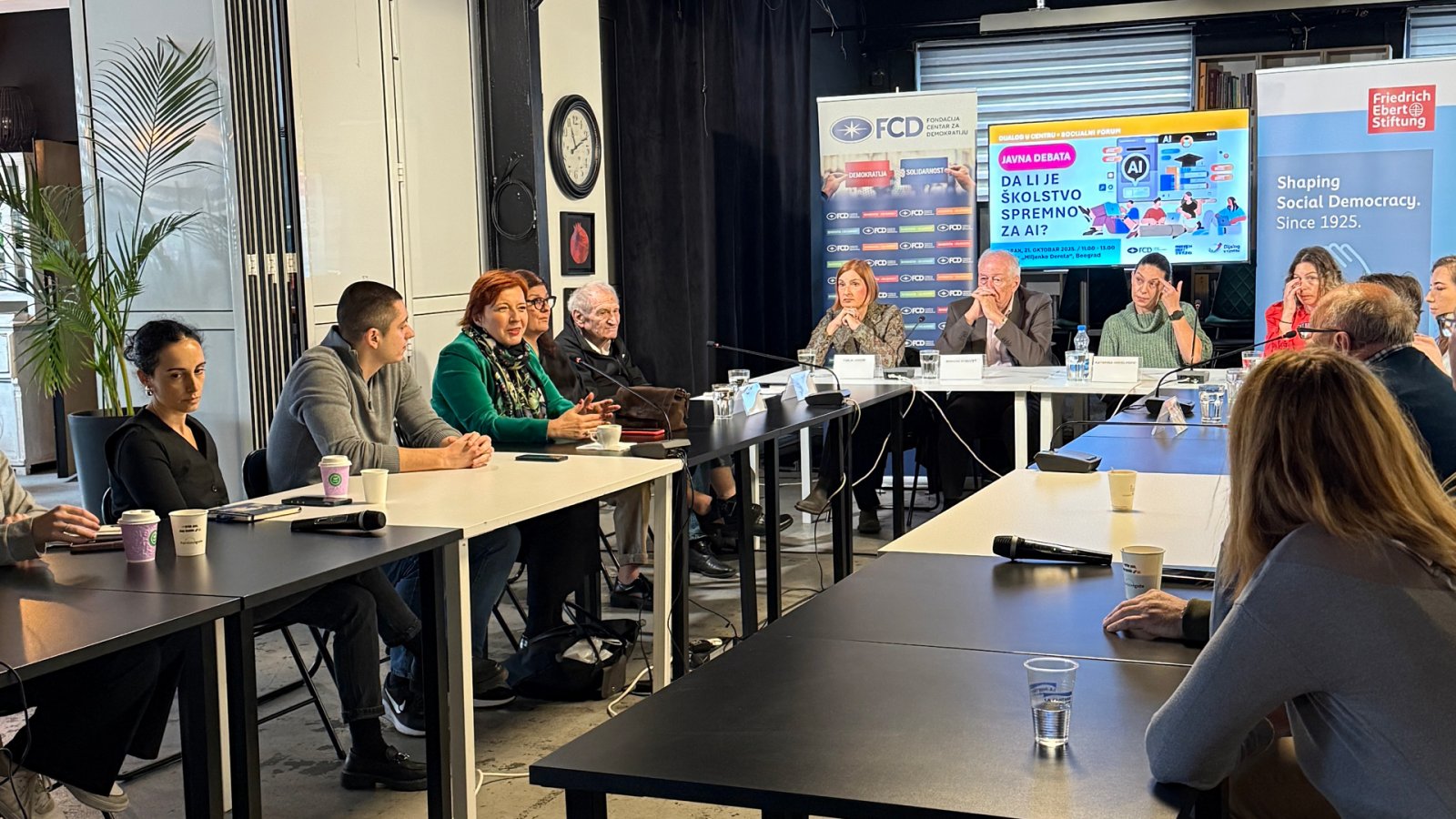
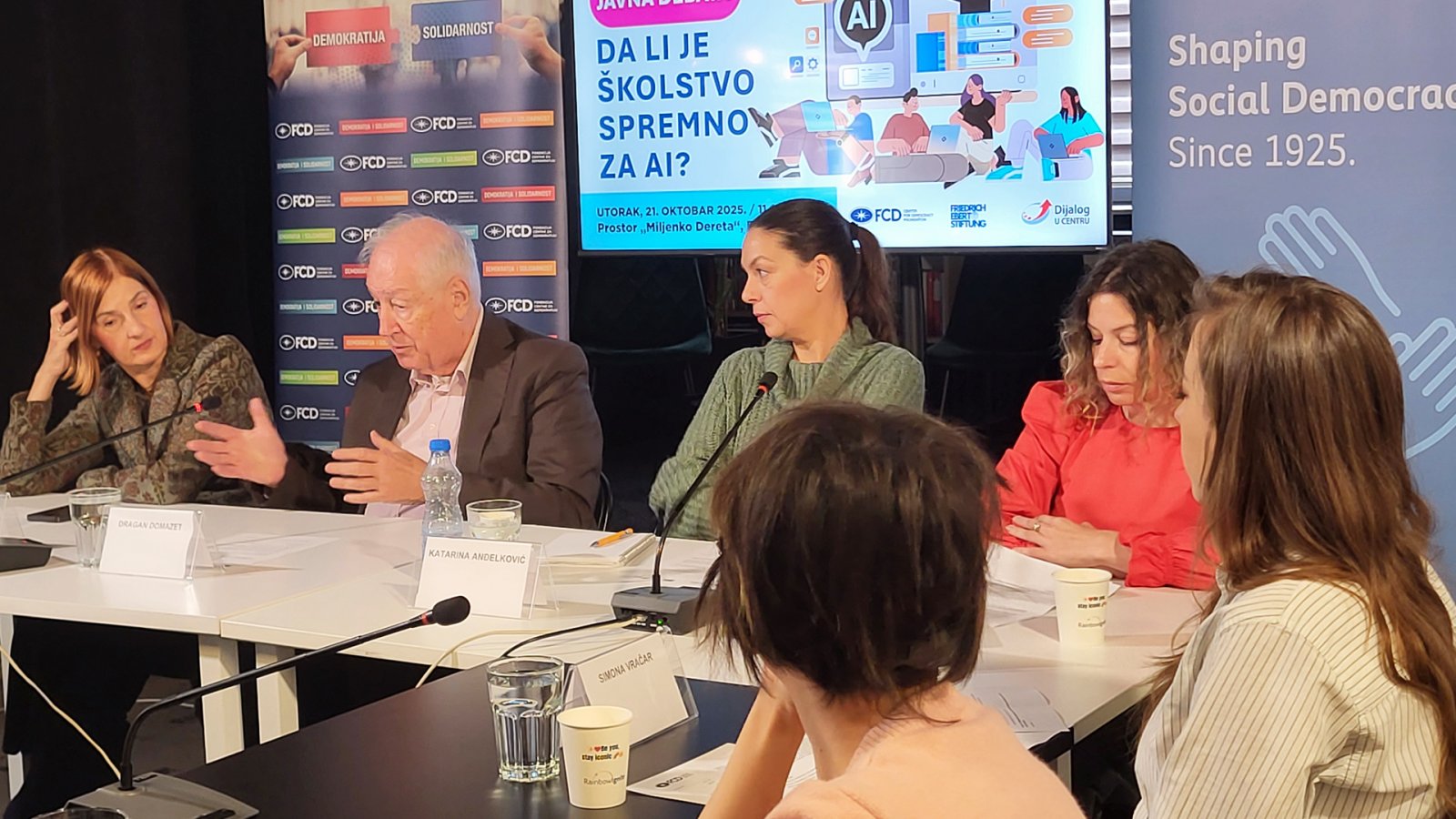
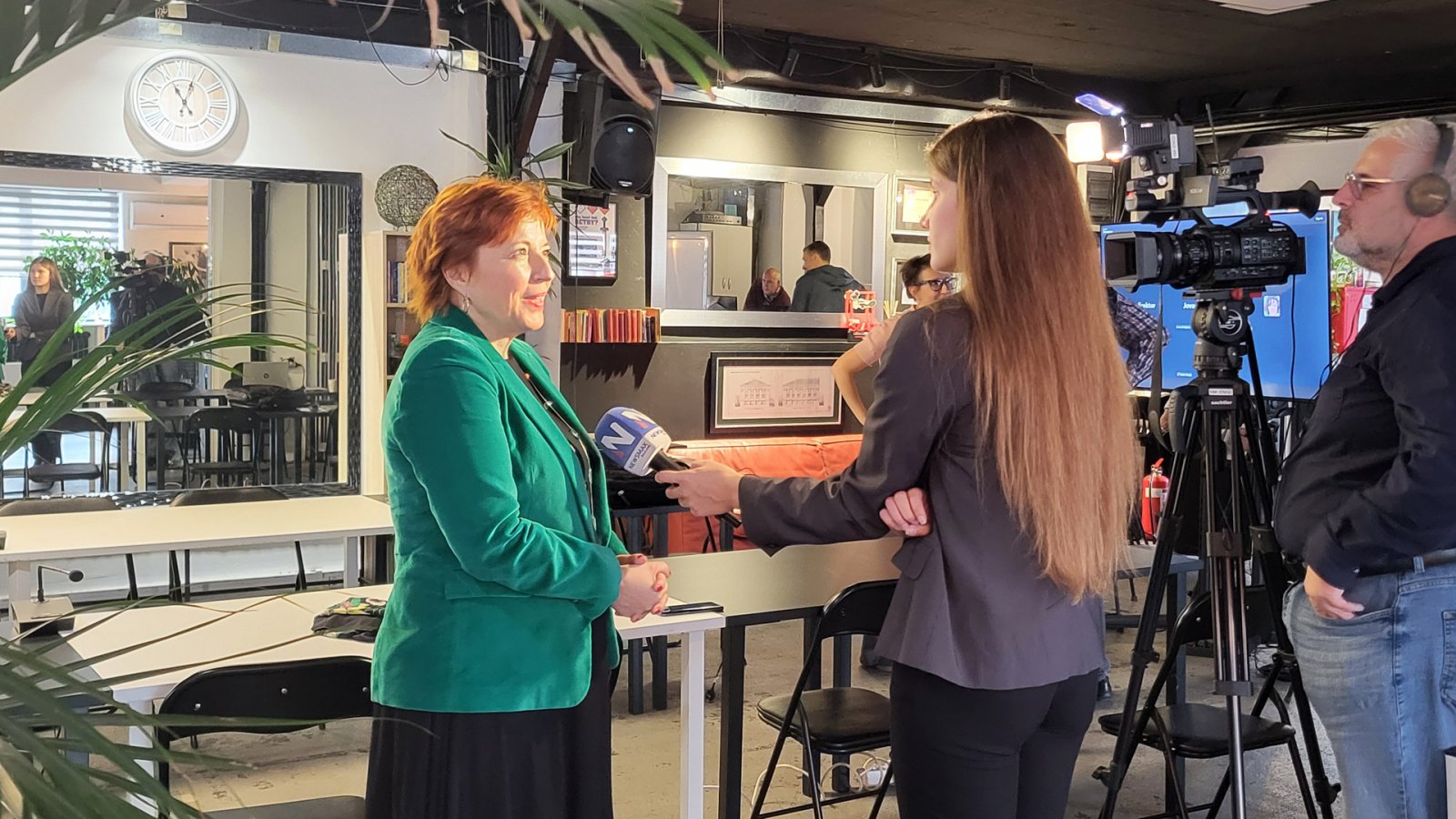
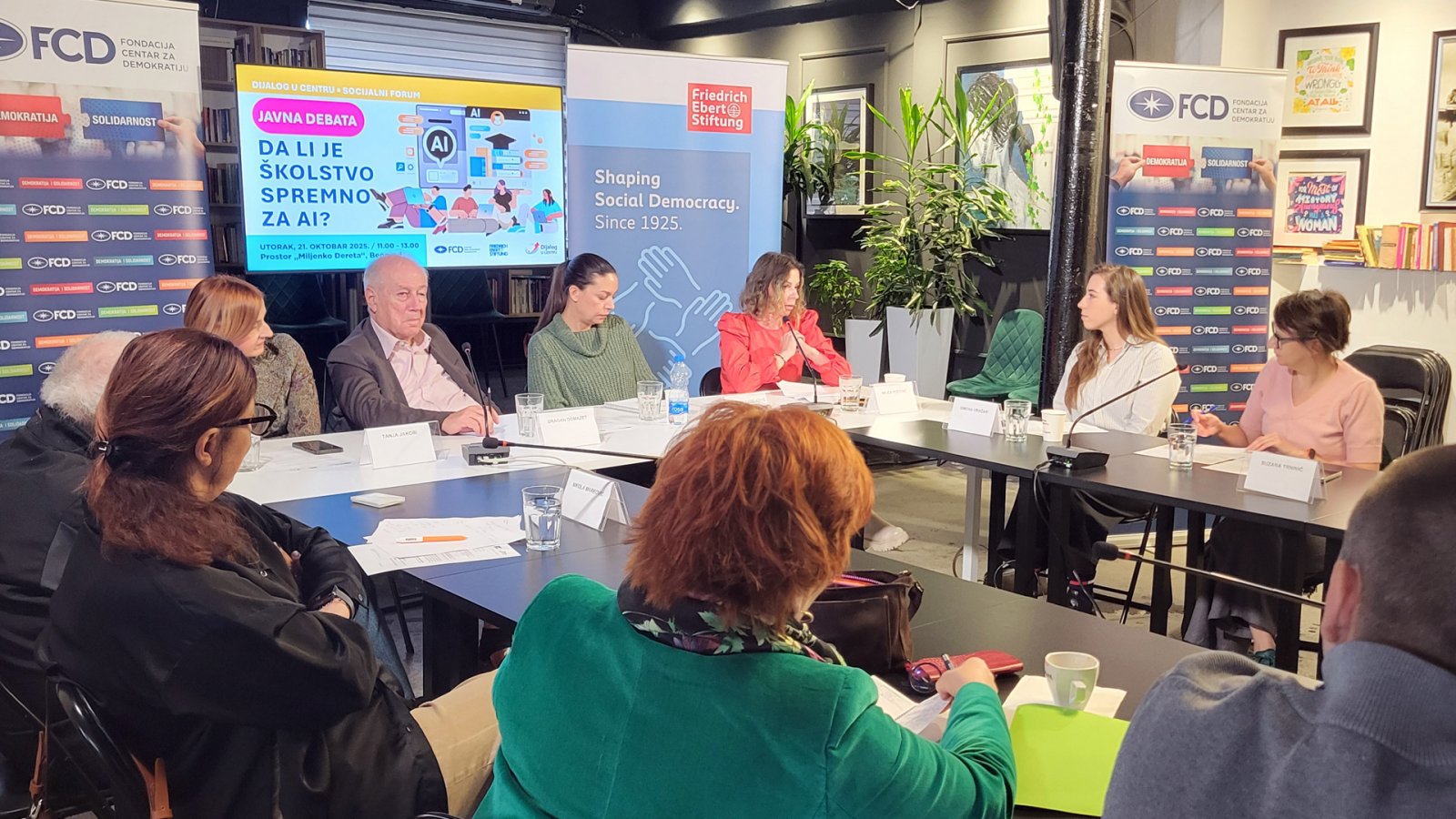
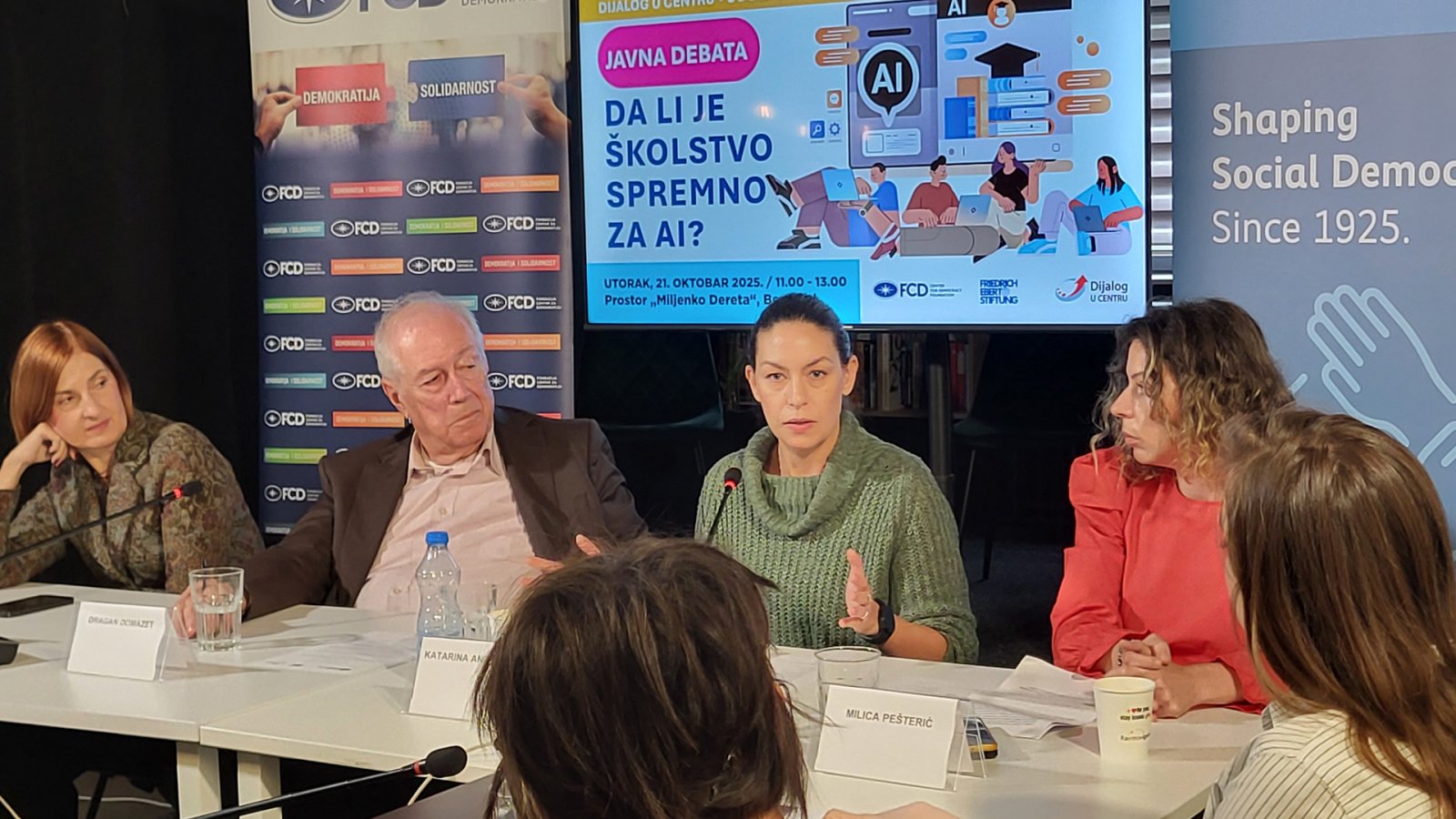
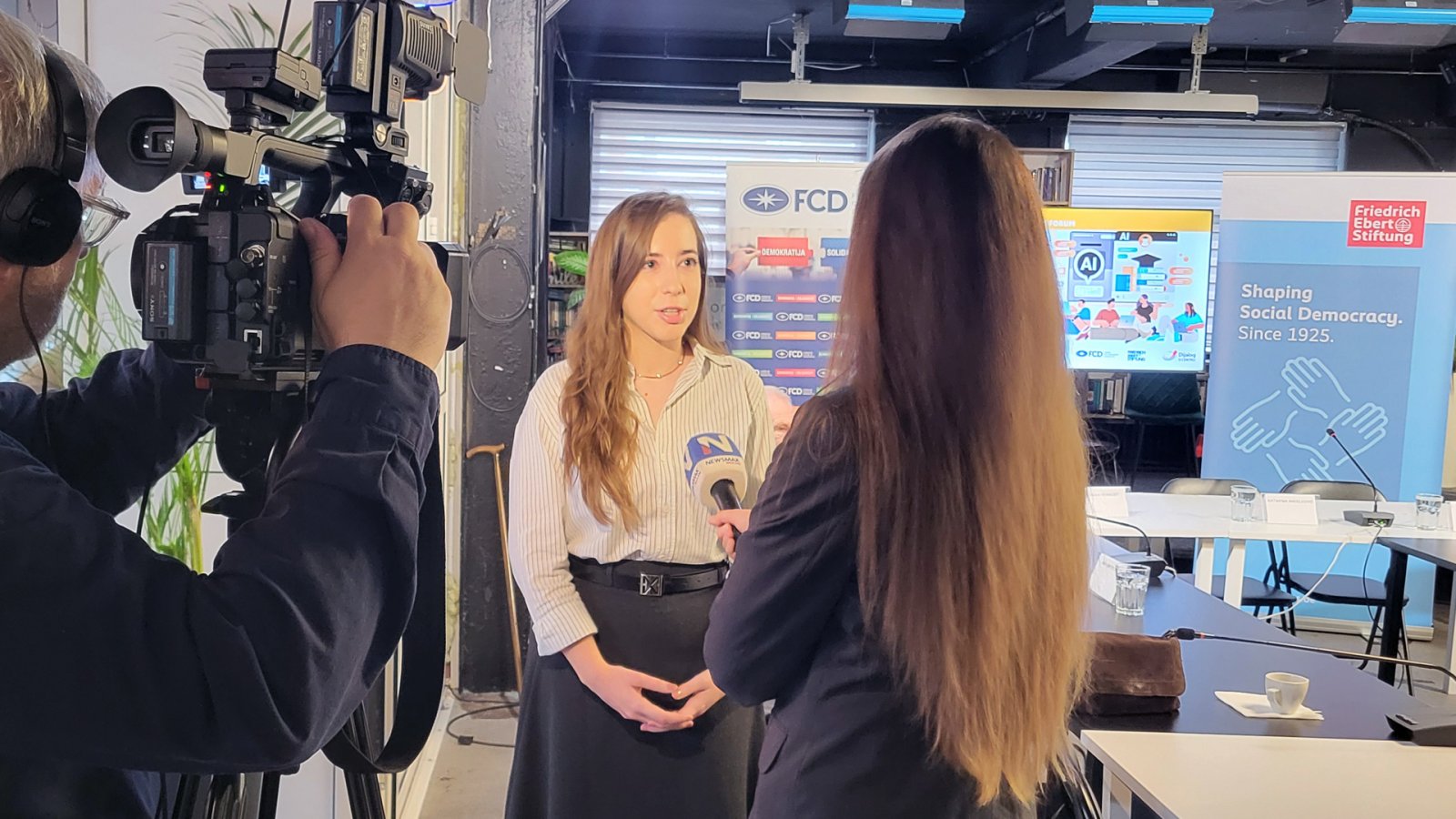
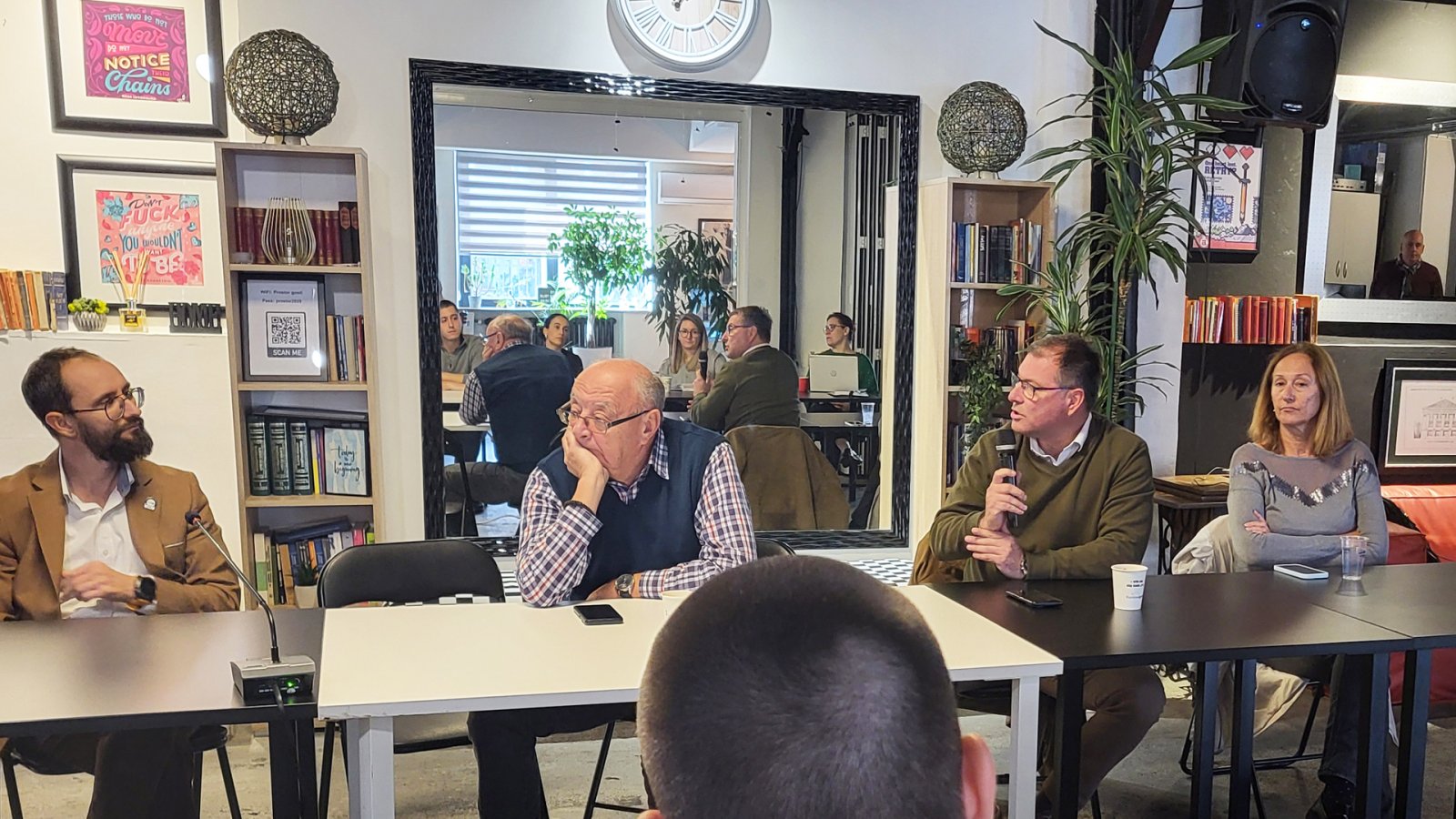
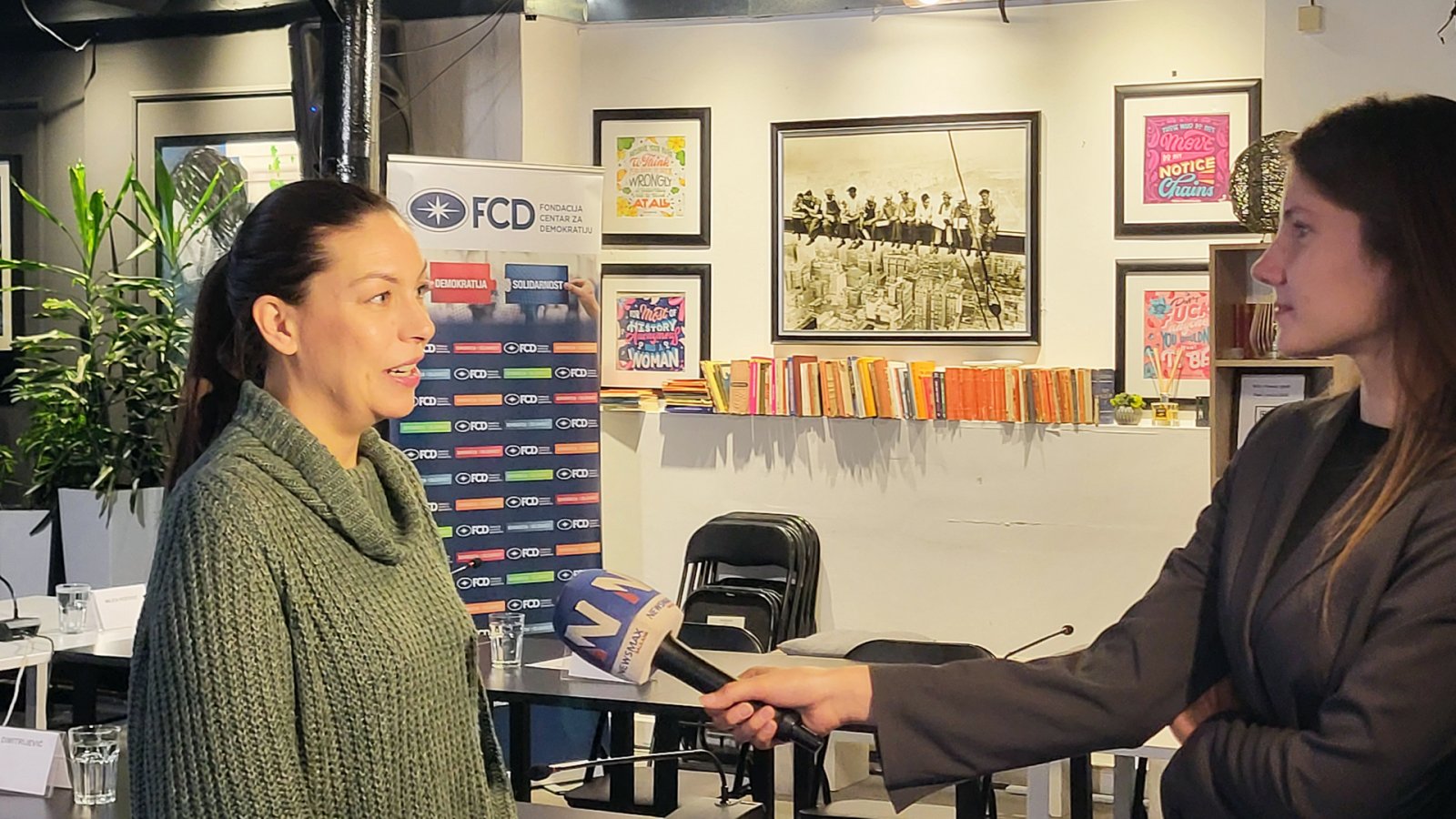
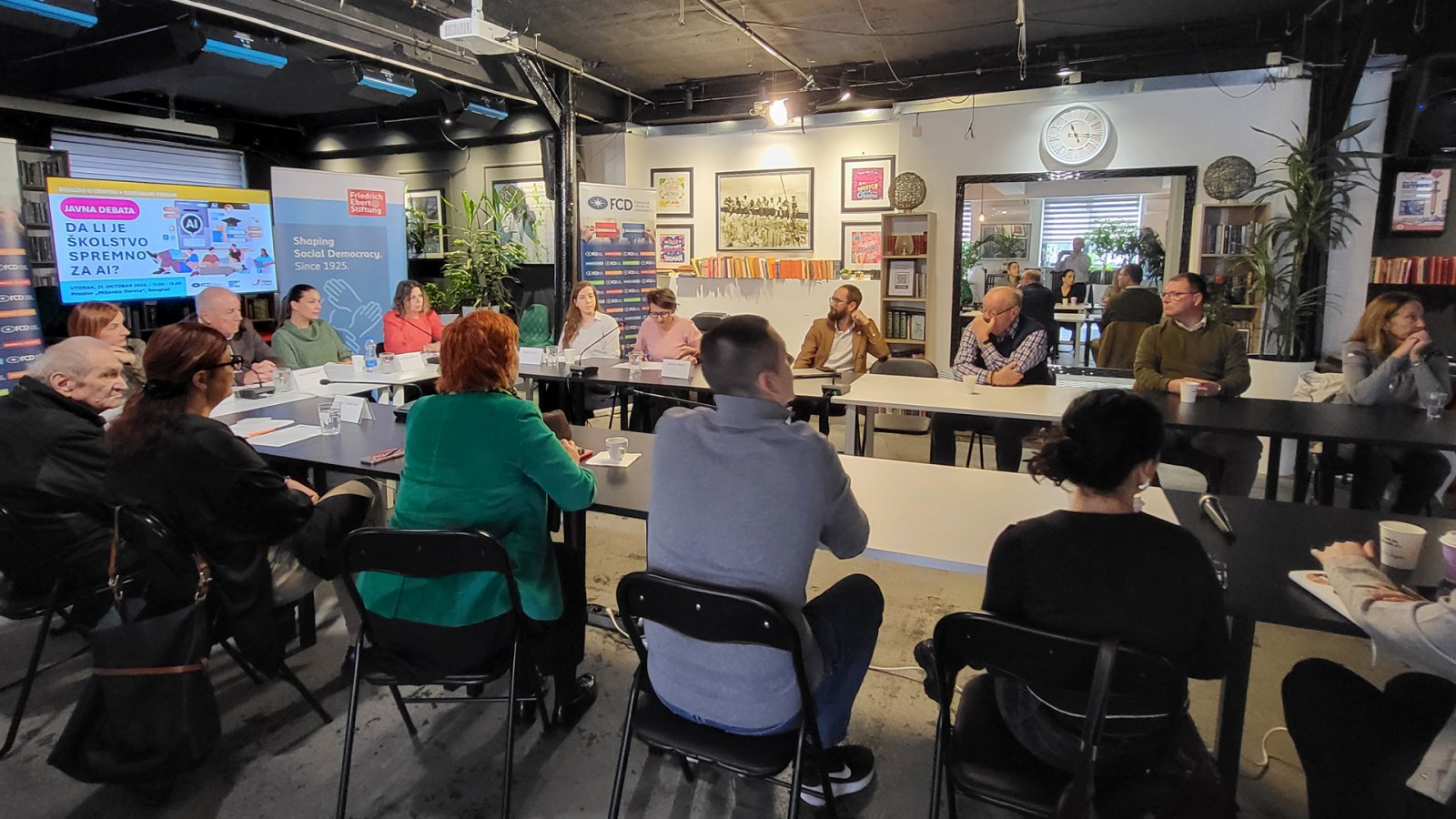
The debate was organized by the Center for Democracy Foundation, in cooperation with the Friedrich Ebert Foundation, within the project DIALOGUE IN THE CENTER – SOCIAL FORUM.
Center for Democracy Foundation
Video
EVENTS
HIGHLIGHTS
2025-11-19 | Belgrade, Sarajevo, Tirana, Skopje, Pristina
REGIONAL CONFERENCE Western Balkan Youth and the European Union: Shaping Our Common Future
CURRENT PROJECTS
PUBLICATIONS
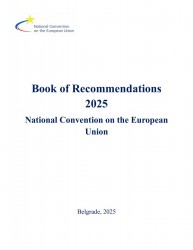 NCEU Book of Recommendations 2025
NCEU Book of Recommendations 2025
 Challenges for Organising and Collective Bargaining in Care, Administration and Waste collection sectors in Central Eastern European Countries
Challenges for Organising and Collective Bargaining in Care, Administration and Waste collection sectors in Central Eastern European Countries
 Public Policy Proposals – Collective Bargaining (CEECAW)
Public Policy Proposals – Collective Bargaining (CEECAW)
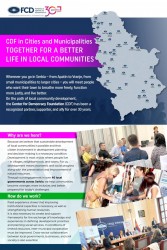 CDF in Cities and Municipalities: Together for a Better Life in Local Communities
CDF in Cities and Municipalities: Together for a Better Life in Local Communities
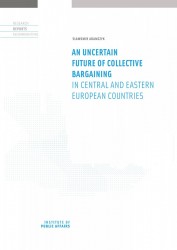 Comparative reports on collective bargaining - CEECAW
Comparative reports on collective bargaining - CEECAW
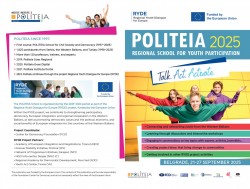 POLITEIA – Regional School for Youth Participation 2025 (leaflet)
POLITEIA – Regional School for Youth Participation 2025 (leaflet)
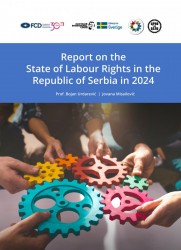 Report on the State of Labour Rights in the Republic of Serbia in 2024
Report on the State of Labour Rights in the Republic of Serbia in 2024
 Unlocking Collective Bargaining Power in Three Sectors: A Call to Action
Unlocking Collective Bargaining Power in Three Sectors: A Call to Action
 Main Issues of Labor Legislation in Serbia
Main Issues of Labor Legislation in Serbia
 New Monitoring Report by the “SDGs for All” Platform: Is the End Goal in Sight?
New Monitoring Report by the “SDGs for All” Platform: Is the End Goal in Sight?
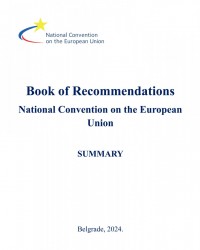 NCEU Book of Recommendations 2024 (Summary)
NCEU Book of Recommendations 2024 (Summary)
 National reports on collective bargaining in Serbia - CEECAW
National reports on collective bargaining in Serbia - CEECAW
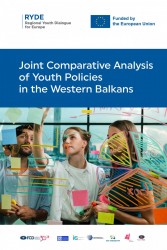 The Comparative Analysis of Youth Policies in the Western Balkans (WB)
The Comparative Analysis of Youth Policies in the Western Balkans (WB)
 Unlocking Collective Bargaining Power in Three Sectors: A Call to Action
Unlocking Collective Bargaining Power in Three Sectors: A Call to Action
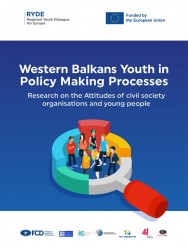 Western Balkans Youth in Policy Making Processes
Western Balkans Youth in Policy Making Processes
 SDGs for All Platform newsletter (December 2023)
SDGs for All Platform newsletter (December 2023)
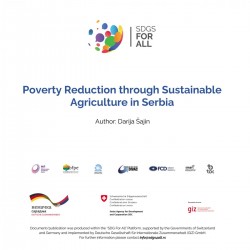 Analysis: Poverty Reduction Through Sustainable Agriculture in Serbia (with Summary)
Analysis: Poverty Reduction Through Sustainable Agriculture in Serbia (with Summary)
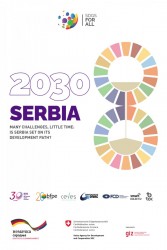 Serbia 2030 - Many challenges, little time: Is Serbia set on its development path?
Serbia 2030 - Many challenges, little time: Is Serbia set on its development path?


